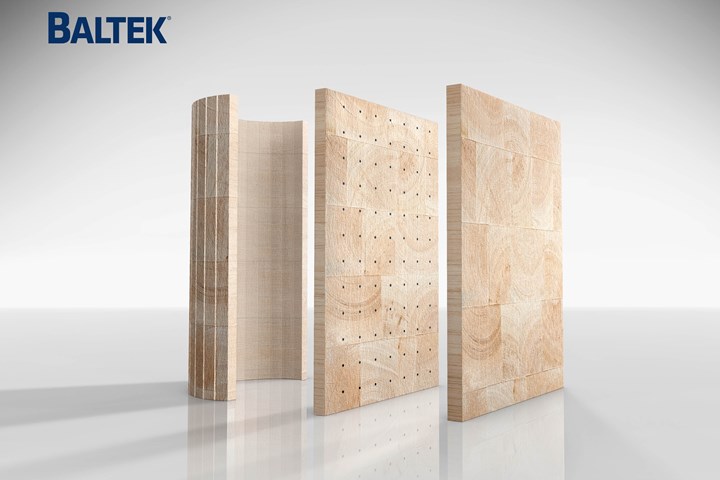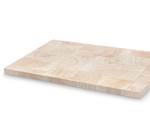3A Composites promotes sustainability initiatives
The company passed its annual FSC review, ensuring responsible balsa wood management, and confirmed Baltek SBC as a carbon-neutral core material.

Baltek BSC. Photo Credit: 3A Composites Core Materials
3A Composites Core Materials (Sins, Switzerland), a supplier of balsa wood core materials from FSC-certified plantations, reported on Dec. 17 that the company’s Ecuadorian forestry site passed the annual Forest Stewardship Council (FSC) review in November, which ensure forests are responsibly managed during wood production. 3A also confirmed that its Baltek SBC is the first carbon-neutral core material in the world.
“We are not only pleased to continue supplying the market with our balsa products from sustainable resources, but also that our sustainable forestry plan has ensured the availability of prime balsa wood to meet the growing demand of our customers even in this challenging year filled with supply chain concerns,” says Juan Matheus, global product manager, Baltek products. “Passing the annual review proves our commitment to FSC requirements and that we believe in doing the right thing — not only for the environment but also for the communities we work in and the industry itself.”
3A’s structural core material, Baltek SBC, comes from 100% controlled balsa plantations which the company owns and manages, enabling full traceability of the wood from seed to the finished good, as well as ensuring the product came from legal plantations. Providing a natural material that is biodegradable, 3A Composites Core Materials says it hopes to contribute to carbon neutrality efforts to ensure a circular economy.
According to 3A, it has even gone beyond those requirements. For example, its Baltek SBC is said to be the first carbon-neutral core material in the world, capturing more greenhouse gas (GHG) emissions than caused by its production.
3A Composites Core Materials’ sustainability plan at its forestry sites is in line with three areas of the United Nations SDGs and FSC Certification Principles and Criteria and covers significant reduction of environmental pollution, the conservation of natural resources and the economic, social and ecological well-being of the communities in which the company operates. Its sustainable activities were further recognized when awarded with the SACHA Acknowledgements for Responsible Forest Management and Responsible Wood Innovations Award and the United Nations Global Compact Award for Best Practices for Sustainable Development.
“Balsa is an amazing lightweight wood and native species of Ecuador. We leave the natural ecosystems by holding and managing own plantations and not touching primary forests,” says Eric Gauthier, CEO 3A Composites Core Materials. “Our diverse global team is deeply committed and lives our values every day. I am confident that we will continue to make further progress in the coming years.”
Related Content
-
Bio-based acrylonitrile for carbon fiber manufacture
The quest for a sustainable source of acrylonitrile for carbon fiber manufacture has made the leap from the lab to the market.
-
TU Munich develops cuboidal conformable tanks using carbon fiber composites for increased hydrogen storage
Flat tank enabling standard platform for BEV and FCEV uses thermoplastic and thermoset composites, overwrapped skeleton design in pursuit of 25% more H2 storage.
-
Sulapac introduces Sulapac Flow 1.7 to replace PLA, ABS and PP in FDM, FGF
Available as filament and granules for extrusion, new wood composite matches properties yet is compostable, eliminates microplastics and reduces carbon footprint.
















